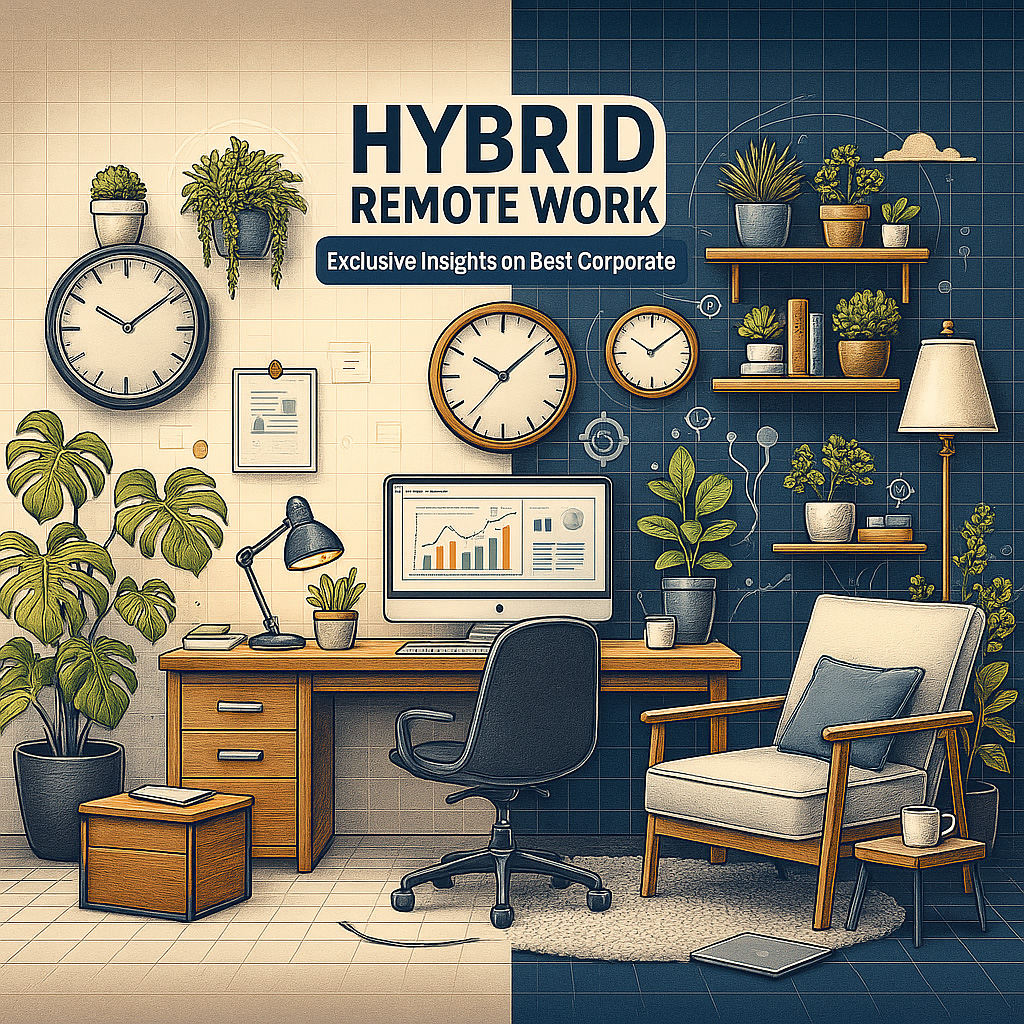In today’s rapidly evolving professional landscape, hybrid remote work has emerged as a transformative approach, reshaping how companies operate and how employees engage with their roles. This model, which blends remote work with traditional in-office presence, offers unique advantages and challenges depending on the nature of the corporate role. Understanding which positions thrive best within a hybrid setting can help organizations maximize productivity while enhancing employee satisfaction. This article offers exclusive insights into the best corporate roles tailored for hybrid remote work environments, providing a roadmap for businesses navigating this flexible future.
Understanding Hybrid Remote Work Dynamics
Before delving into specific roles, it’s essential to grasp what hybrid remote work entails. Unlike fully remote positions, hybrid models require employees to spend some days working on-site and others remotely. This setup aims to balance collaboration, face-to-face interaction, and independent work flexibility. The effectiveness of hybrid remote work depends significantly on the job’s characteristics, communication needs, and technological demands.
Why Certain Corporate Roles Excel in Hybrid Remotework
Some roles inherently suit the hybrid remote work model due to the nature of their tasks and responsibilities. Roles that combine independent project work with periodic team collaboration are prime candidates. These positions often require strategic planning, critical thinking, and creative problem-solving, which can be conducted efficiently from home, alongside days dedicated to meetings, brainstorming sessions, or client interactions in the office.
Best Corporate Roles for Hybrid Remote Work
1. Project Managers
Project managers often top the list for hybrid suitability. Their role centers around coordinating team efforts, managing deadlines, and ensuring project goals are met. Much of this work, such as scheduling, progress tracking, and communication, can happen remotely via digital tools. However, in-person meetings enhance team synergy and problem-solving during complex stages, making a hybrid approach ideal.
2. Marketing Professionals
Marketing roles, including content strategists, digital marketers, and brand managers, benefit significantly from hybrid remote work. Developing creative campaigns, conducting market research, and analyzing performance metrics are tasks that can be done autonomously. Meanwhile, collaboration sessions for brainstorming and campaign launches often benefit from the energy and spontaneity of the office environment.
3. Software Developers and IT Specialists
Tech professionals, especially software developers and IT specialists, are well-suited to hybrid models due to the nature of their work. Coding, debugging, and system monitoring can be efficiently completed remotely, while office days can focus on collaborative problem-solving, sprint planning, or security discussions. Hybrid work enables these roles to access quiet, uninterrupted time and essential team huddles.
4. Human Resources (HR) Managers
HR managers serve as a bridge between organizational policies and employee needs. Their role requires confidentiality, interpersonal communication, and strategic management of talent and culture. While remote work supports administrative tasks like payroll processing and policy development, office presence is crucial for conducting interviews, handling sensitive employee relations, and fostering company culture.
5. Financial Analysts and Accountants
Financial analysts and accountants often deal with data-intensive work that requires focus and precision. The quiet home environment is ideal for tasks such as data analysis, financial modeling, and report generation. However, periodic in-person meetings with stakeholders are necessary to present findings, discuss strategies, and ensure alignment with business objectives.
Hybrid Remotework Challenges and Solutions
Although certain roles shine within hybrid settings, they also come with inherent challenges. Communication gaps, technology barriers, and maintaining team cohesion can affect productivity. To mitigate these issues, companies must invest in reliable collaboration tools, establish clear hybrid work policies, and foster a culture of trust and accountability.
Regular check-ins, both virtual and face-to-face, help maintain alignment. Encouraging flexibility allows employees to tailor their work environment to their tasks, optimizing performance. Training managers to lead hybrid teams effectively is equally critical to maintaining motivation and engagement.
Future Outlook: Hybrid Work as a Standard Practice
Hybrid remote work is not just a temporary trend but a long-term shift in corporate culture. As technology evolves and organizations prioritize work-life balance, hybrid models will continue to adapt. Roles that leverage a mix of autonomy and collaboration will thrive, driving innovation and employee satisfaction.
Organizations that strategically identify the best roles for hybrid work and cultivate supportive environments will gain a competitive edge in talent acquisition and retention. The ability to offer employees the best of both worlds — flexibility and connection — will define the future of work.
Conclusion
Hybrid remote work presents a compelling path forward by blending flexibility with collaboration. By recognizing which corporate roles are best suited to this model—such as project managers, marketing professionals, software developers, HR managers, and financial analysts—companies can harness its full benefits. Addressing challenges with thoughtful strategies further enhances its effectiveness. Embracing hybrid work mindfully will empower organizations to thrive in the modern business landscape while meeting diverse employee needs.
